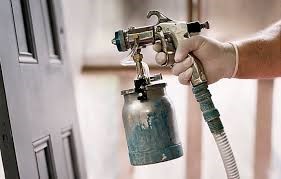MEK vs. Acetone
MEK and acetone are both used as industrial solvents for stripping and cleaning uncured and cured resins and coatings, and for cleaning pumps and other equipment. Since MEK solvents are slightly harsher chemicals, some choose to replace MEK with acetone as a “safer” alternative.
While MEK chemicals are often seen as a safer replacement, it is important to consider alternative solvents that are environmentally friendly while delivering industrial-strength results for cleaning applications. Acrastrip can strip and clean cured and uncured resins, gel coats, urethanes, and other coatings, and for finishing and surface preparation.
Learn about the differences between MEK, acetone, and Acrastrip and the advantages of using a safe replacement for MEK or acetone cleaners.
What is MEK?
Methyl ethyl ketone (MEK) is a colorless liquid that has a sweet odor and is soluble in water. It is a highly volatile chemical. MEK is frequently used as a commercial cleaner and solvent for glues, paints, coatings, and printing inks.
Workers are exposed to MEK when the vapors are present in the air or by absorbing the product through their skin. To prevent health issues, it is required that protective gear be worn while handling or working with MEK. Since MEK is flammable, extreme caution must also be taken when shipping or storing the product.
MEK Safety Risks
- Flammability Rating of 3 (severe)
- Contact rating of 2 (moderate)
- Health rating of 2 (moderate)
- Reactivity rating of 1 (slight)
- Requires use of protective equipment
MEK Health Risks
- Nose and throat irritant
- Eye irritation caused by vapors
- Central nervous system depression under high concentrations or after chronic exposure
- Skin irritant that causes redness and itching
Acetone Chemical Considerations
Acetone is a colorless, highly volatile liquid that dissolves in water. Like MEK, it is commonly used in industrial applications as a solvent for resins, waxes, oils, fats, lacquers, varnishes and other coatings and adhesives.
People often replace methyl ethyl ketone (MEK) with acetone in their industrial applications because it is somewhat less toxic than MEK, but it carries many of the same health and safety risks. Prolonged exposure to acetone is especially dangerous. At high levels, its vapors can cause central nervous system issues, cardiorespiratory failure, or even death.
Acetone Safety Risks
- Flammability rating of 3 (severe)
- Contact rating of 3 (severe)
- Health rating of 2 (moderate)
- Requires use of protective equipment
Acetone Health Risks
- Vapors cause respiratory tract irritation
- Eye irritant
- Severe irritation or dermatitis with prolonged skin contact
- Cases coughing, dizziness and headache if vapors are inhaled
- High concentrations can result in nervous system depression or unconsciousness
AcraStrip: A Safer Alternative to Using Methyl Ethyl Ketone (MEK) or Acetone Solvents
When deciding between methyl ethyl ketone (MEK) vs. acetone, consider the health and safety risks, as well as the environmental impact. Both are highly flammable, pose a health risk when inhaled, and require the use of safety gloves to protect skin from exposure. Fortunately, there is a safer alternative that delivers the same results without the added health risks and safety and environmental hazards.
Advantages of using AcraStrip as a replacement for MEK or acetone include:
- Non-flammable
- No environmentally hazardous ingredients
- Semi-aqueous
- Produces no hazardous fumes
- Does not require SARA 313 reporting
- Zero HAP content
- pH neutral
- Biodegradable
- Made in the US
Acrastrip Considerations
While Acrastrip is an acetone substitute, it cannot thin paint out or dilute like acetone. Acrastrip can clean, lift, wipe, and remove as a flushing agent.
Contact Us to Learn More About Replacing MEK or Acetone with AcraStrip Products
AcraStrip products are suitable for a range of solvent and cleaning applications and are offered in various concentrations. Since they do not generate hazardous waste, they ship DOT non-regulated. Contact us today or call 800-431-2072 to learn more about safer alternatives for MEK or acetone.



